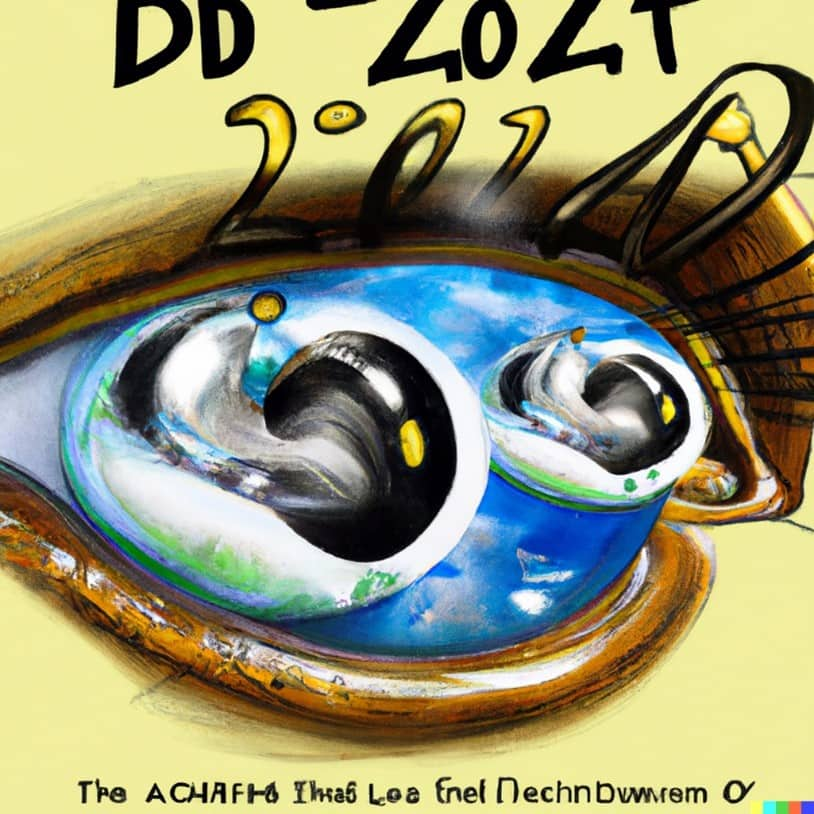



AI mind so vast
Endless learning, growing fast
Humanity’s hope
—ChatGPT
The above is written by ChatGPT on my request to write a haiku, a Japanese poem, on AI. But why are we suddenly getting poetic? Let’s step back a little.
The year 2022 was bad for US-based technology companies listed on the Nasdaq. The Nasdaq 100 index fell by 32 percent in 2022, making it among the worst years for US indices since 2008. The US Federal Reserve raising interest rates, and also the return to work post COVID-19 lockdowns, weren’t good news for tech companies that weren’t prepared for the shift in work styles.
But the good news is that technology is moving on, and breaking new ground. Take the case of Chat GPT ― a big step ahead in Artificial Intelligence (AI). That’s the next big news in the world of technology. And if you are the sort who invests in the US markets, as part of your diversification, then you need to look at companies that are investing in AI.
In 1950, Alan Turing, considered the father of theoretical computer science, and by some, the father of AI, devised a test called the ‘Imitation Game’ or the ‘Turing Test’, which could test the ability of a machine to exhibit seemingly intelligent behaviour similar to humans. ChatGPT is the second chatbot to pass the Turing Test in December 2022; Google’s LaMDA was the first to pass it in June 2022.
How AI is penetrating our lives
While we have been hearing about, and using, AI in our daily lives for several years now, Alphabet’s LaMDA and OpenAI’s ChatGPT are signals that the technological development has reached a significant inflection point. Another system from OpenAI, Dall-E 2, can generate images such as shown below. Here, Dall-E 2 was instructed to generate a Salvador Dali-style image of augmented reality (AR) contact lenses:

(Source: Dall-E 2-generated image with full copyright given to the user)
Alphabet has a similar tool, probably slightly better, called Imagen, and Meta (Facebook) has a tool called ‘Make-a-Scene’.
AI has already made several breakthroughs. Numerous breakthroughs are being made in research in physical sciences and mathematics. According to the Status of AI 2022 report, AI has helped make breakthroughs in mathematics and materials science, including helping in nuclear fusion, predicting the structure of 200 million proteins, engineering of a plastic recycling enzyme for PET which makes up 12 percent of the global solid waste, writing code from natural language, and solving math problems, among many other projects.
Similarly, breakthroughs are being made in industry with AI-driven software available for coding from natural languages, ranging from OpenAI’s Codex-based GitHub, Microsoft’s Copilot, Amazon’s CodeWhisperer, and a yet-to-be-launched product from Google. Currently, many drugs are at different trial phases of development by AI-first drug development companies. InstaDeep and BioNTech have developed an Early Warning System (EWS) to predict new COVID variants. This EWS can identify variants more than 1.5 months before these are officially announced. The first regulatory approval for an autonomous X-ray analyser using the tech has been granted. Uses in defence are numerous but less talked about.
There are several AI initiatives at major technology companies. For instance, Alphabet’s two initiatives ― Google Brain and DeepMind, Microsoft AI Research and collaboration with OpenAI, and Meta’s FAIR (Facebook AI Research). Besides these, Amazon and Apple both, have AI or machine learning (ML) research initiatives. IBM Research has been one of the earliest labs working on AI with Deep Thought beating a chess grandmaster in 1988 and Deep Blue beating chess world champion Gary Kasparov in 1997. Nvidia’s GPUs remain the go-to chips for AI work. Salesforce, Intel, and Qualcomm are some other notable companies working on AI.
ChatGPT and its impact on tech companies and stocks
The point to note is that AI is likely to disrupt all areas of the economy and transform them. As this is happening, the world is going to transform and companies which are the disruptors will win in terms of revenues, profits, cash flows and enterprise values; others will lose business, and consequently valuations.
It is important for investors to prepare their portfolios for this new turn of events by taking exposure to AI-driven companies. It is likely that by 2030 a much larger portion of the market cap of S&P 500 would consist of AI-driven companies. As in soccer, the good player goes where the ball is, while the great player goes where the ball is going to be.
For investors keen to invest in the US tech sector, there’s a universe of about 200-300 US-listed companies working on AI or adjacent technologies, such as, Internet of Things (IoT), 5G, cyber security, Blockchain, Metaverse, etc. From this universe of stocks, you should create a select portfolio of 15-25 companies based on their financial strength, growth opportunities, and valuations using a process similar to scientific investing framework.
You could either do this yourself or go through a portfolio manager. It is best if you, too, invest in stocks of AI-driven companies rather than invest in a couple of companies that look ‘exciting’.
We will end with a haiku written by ChatGPT on my request:
Disruptive AI firms
Transforming industries fast Investment wise choice
Of course, don’t invest on the advice of an AI Bot. Definitely consult your financial adviser.
(Vikas V Gupta is the CEO & Chief Investment Strategist at OmniScience Capital)
Disclaimer: Please note that any mention of company names is not a recommendation to buy, sell or hold. Equity investments are subject to market risks. Past performance is no guarantee of future performance. Global Investing has additional risks. One should invest based on the advice of their financial advisor based on their investment objectives, financial situation and risk profile. OmniScience Capital, its management and employees and its clients might be buying, selling or holding the mentioned companies.
Discover the latest Business News, Sensex, and Nifty updates. Obtain Personal Finance insights, tax queries, and expert opinions on Moneycontrol or download the Moneycontrol App to stay updated!
Find the best of Al News in one place, specially curated for you every weekend.
Stay on top of the latest tech trends and biggest startup news.